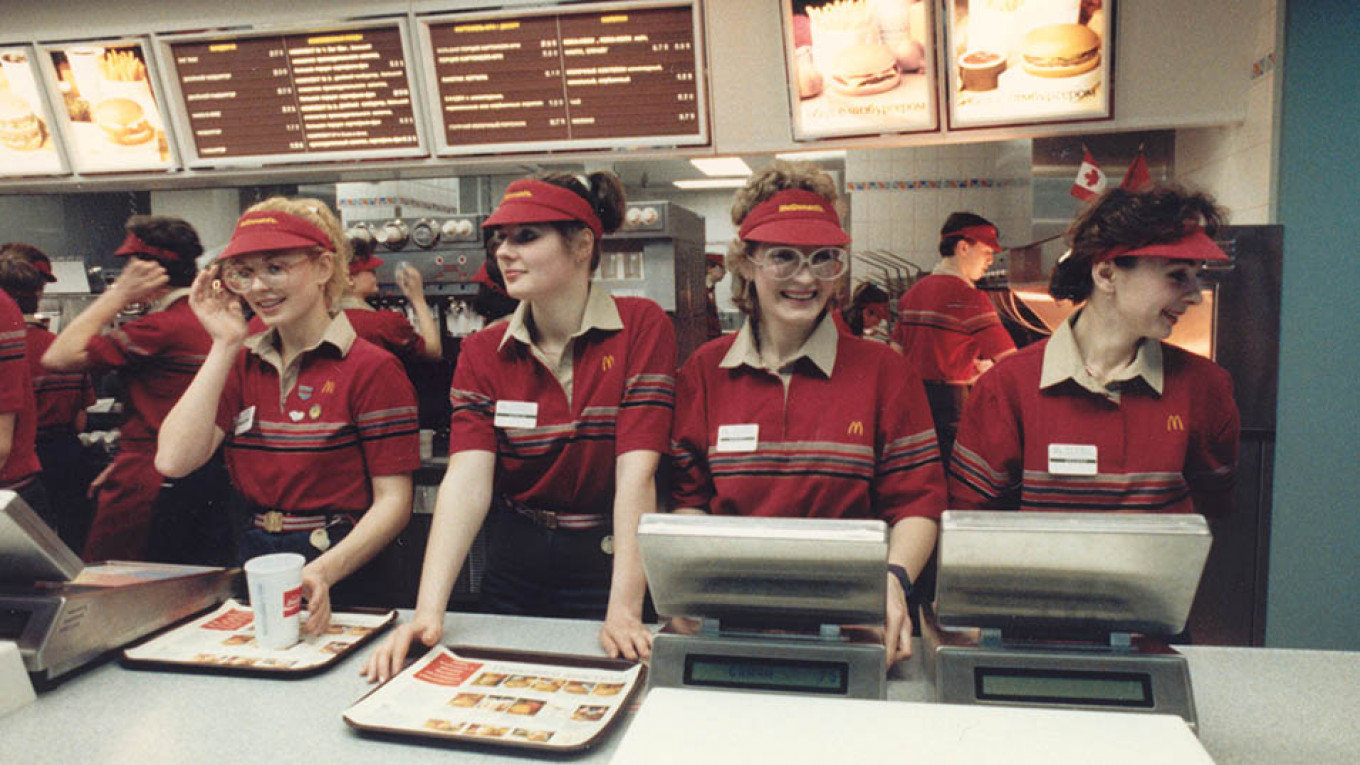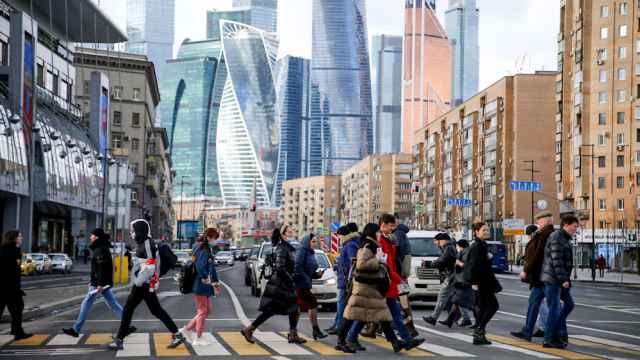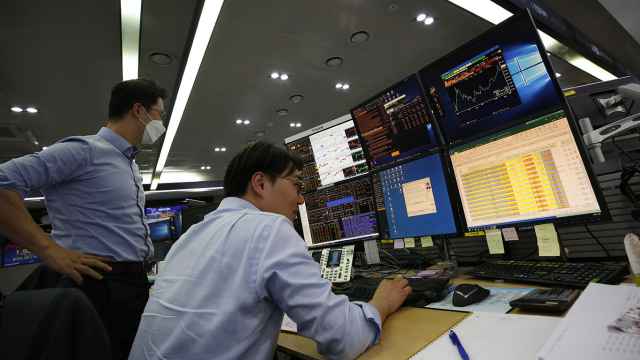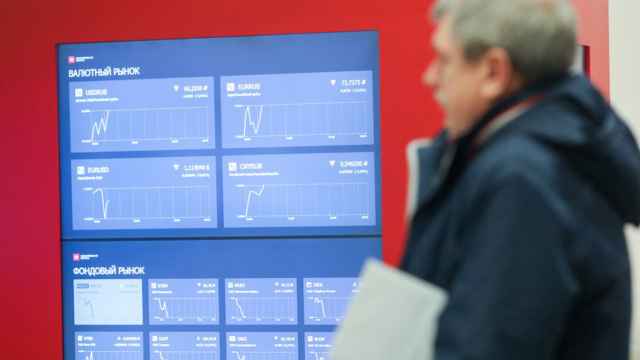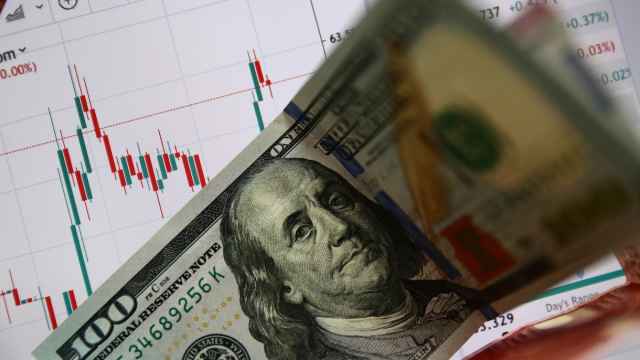When McDonald’s came to Russia 30 years ago Friday, its first restaurant on Pushkin Square in central Moscow was one of the most expensive fast food joints in the world.
At 3 rubles and 75 kopecks, the average Soviet worker would have had to part with half a day’s wages for a Big Mac meal back in January 1990. The famous McDonald’s burger, in all its capitalist glory, had come to Communist Russia — and was more expensive here than anywhere else in the world.
Based on official Soviet exchange rates at the time, the Big Mac cost the equivalent of $6.25 — far ahead of the world’s next priciest Big Mac, which came in at $3.99 in Denmark, data from the Economist’s Big Mac Index shows.
The index, established by the British newspaper in 1986, tracks the prices of Big Macs around the world as an indicator of each country’s purchasing power, giving an idea of whether local currencies are under or overvalued compared to the U.S. dollar.
Today, Russian Big Macs are among the cheapest in the world at 135 rubles ($2.13), compared to more than $5 in the U.S., Scandinavia and Switzerland. Only customers in Ukraine, Egypt and Malaysia pay less.
In the 2020 edition of the Index, The Economist said the huge price difference between Russian and American Big Macs “suggests the Russian ruble is 61.2% undervalued”, with an “implied exchange rate” of 24 rubles to $1. The actual actual exchange rate is currently 62 rubles to $1.
The history of Big Mac prices in Russia is a snapshot of the country’s wider economic — and political — fortunes.
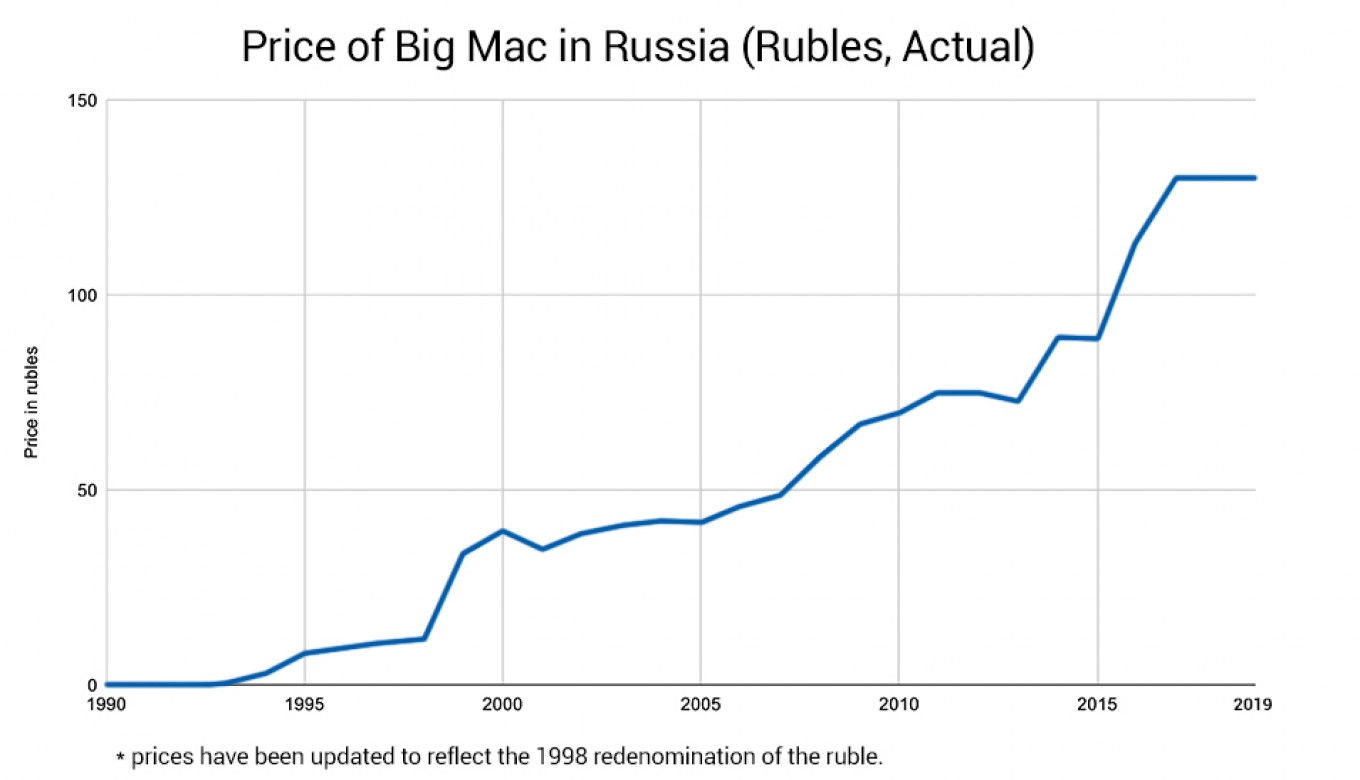
With the fall of the Soviet Union, prices tumbled, dropping almost 90% in dollar terms from $5.75 to $0.59 between 1991 and 1992.
Measured in rubles, prices then rose drastically through the 1990s as Russia struggled with runaway inflation and a weak currency.
A Big Mac which cost less than 4 rubles in 1990, had jumped to 58 rubles in 1992 before soaring to 12,000 rubles in 1998. That rapid loss of confidence in the Russian financial system pushed the government into currency reform that summer, swapping old rubles for new ones at a rate of 1,000-to-one.
Since then, Big Macs have set Russians back anywhere between 12 and 135 rubles.
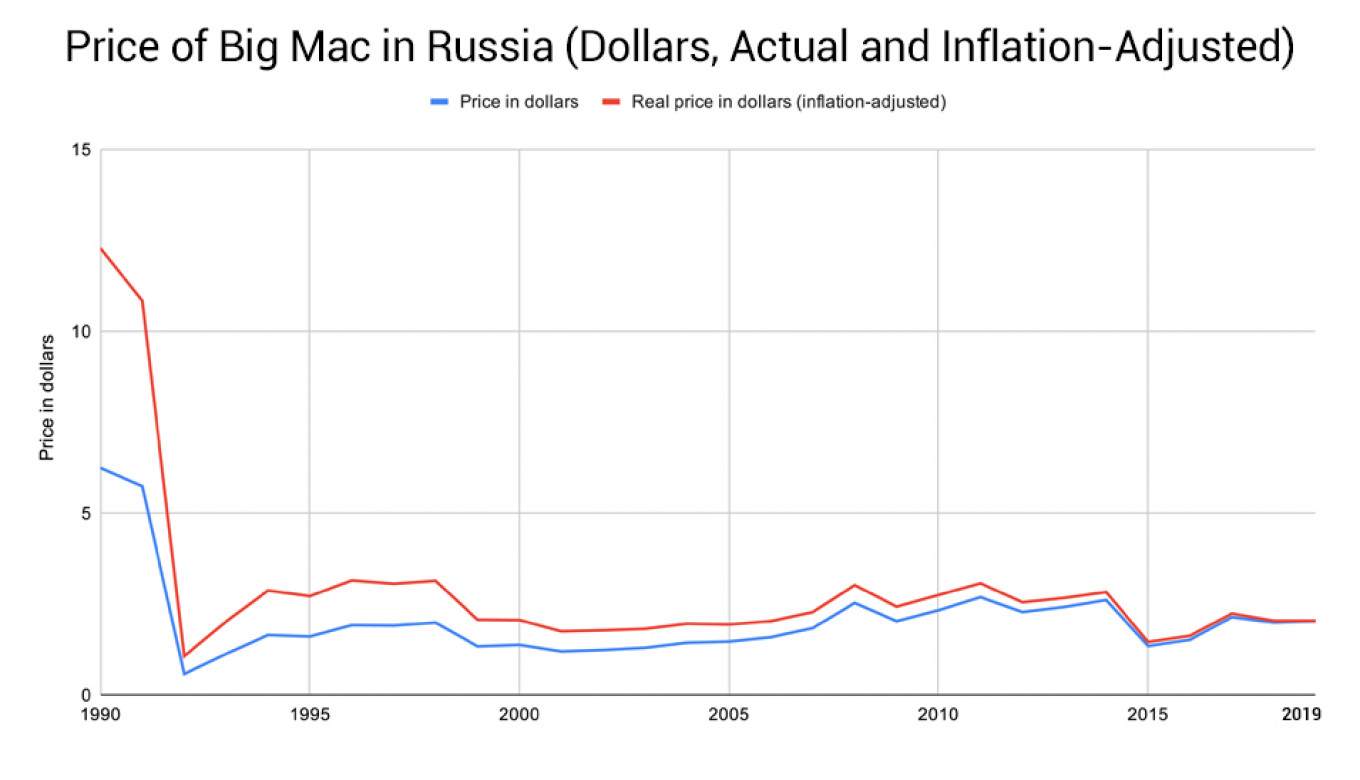
Prices hit their highest in the post-Soviet era in 2011, when they were equivalent to $3.08 in today’s dollars. Just four years later they plummeted to $1.47, as the ruble again fell, following Russia’s annexation of Crimea, the imposition of sanctions and a sharp drop in oil prices which rocked the Russian economy.
The fast food chain had been planning to set a new record-low price for Big Macs — for one day only — of 3 rubles ($0.05) Friday, to mark its 30th anniversary celebrations. However, on coronavirus fears the offer had to be scrapped after Moscow authorities advised companies to avoid holding events which could draw large crowds, for fear of infection risk.
A Message from The Moscow Times:
Dear readers,
We are facing unprecedented challenges. Russia's Prosecutor General's Office has designated The Moscow Times as an "undesirable" organization, criminalizing our work and putting our staff at risk of prosecution. This follows our earlier unjust labeling as a "foreign agent."
These actions are direct attempts to silence independent journalism in Russia. The authorities claim our work "discredits the decisions of the Russian leadership." We see things differently: we strive to provide accurate, unbiased reporting on Russia.
We, the journalists of The Moscow Times, refuse to be silenced. But to continue our work, we need your help.
Your support, no matter how small, makes a world of difference. If you can, please support us monthly starting from just $2. It's quick to set up, and every contribution makes a significant impact.
By supporting The Moscow Times, you're defending open, independent journalism in the face of repression. Thank you for standing with us.
Remind me later.



